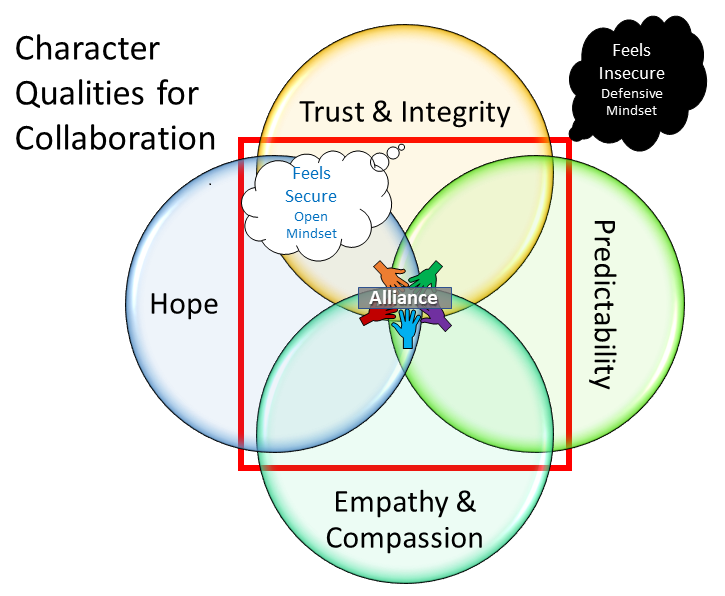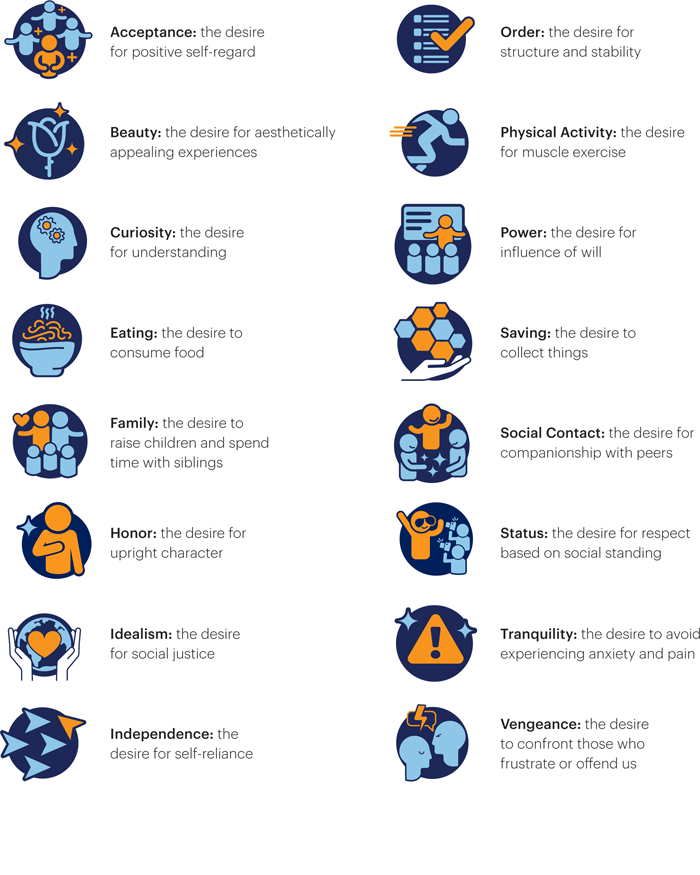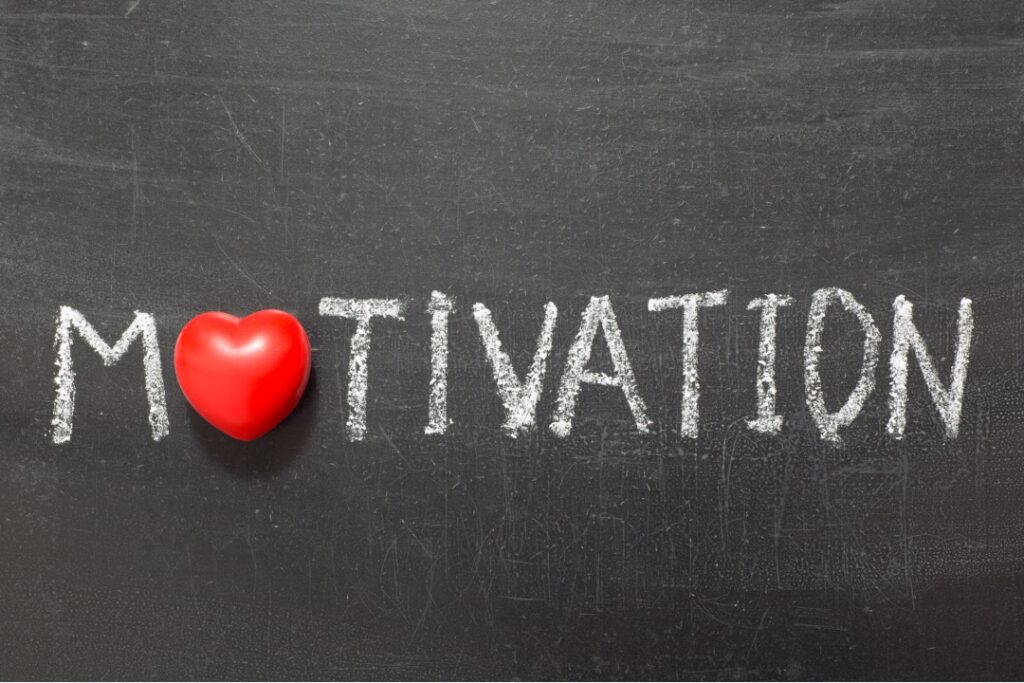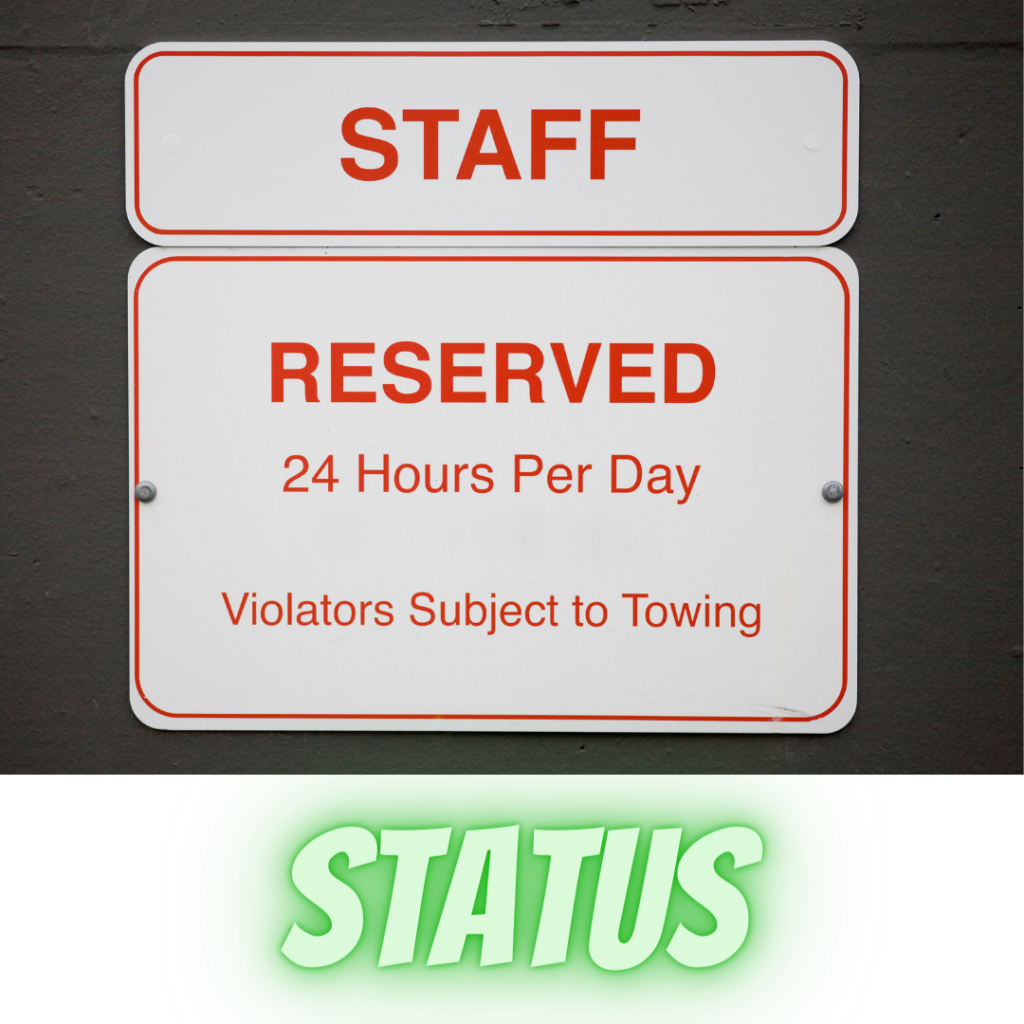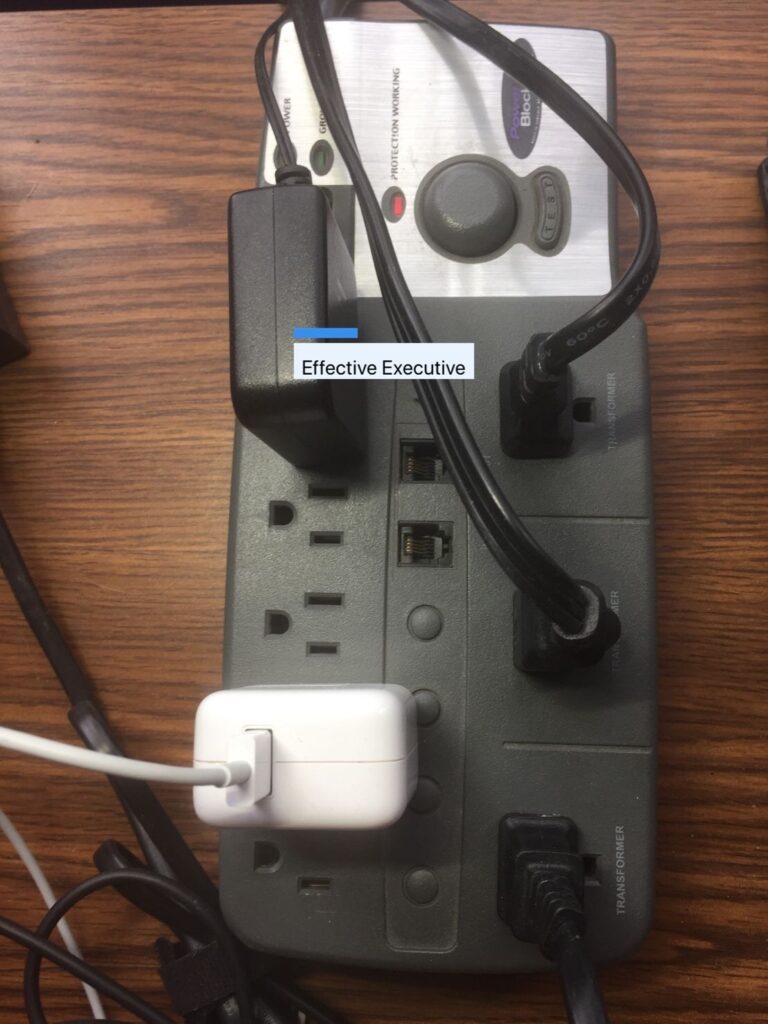
What Does Excellence Look Like?
“I don’t understand why three of my sales reps can be so much more successful than the rest of my team,” shared my coaching client, who is a senior sales manager at a large international firm.
“What do your rock stars do differently than your garage band players?” I asked.
“They get the job done, so I pretty much give them the autonomy to do whatever they think is best to make their numbers. Whatever they are doing is working.”
“What can you learn from the best practices of your best performers? What does excellence look like at each key phase of your ideal sales process?”
“I don’t know. My best three sellers all have very different personalities and approaches, but it seems to work for them.”
“Do your average salespeople know what they should be doing differently to make their sales goals? Is their less than stellar performance due to a lack of skill or will?”
“My guess is probably a bit of both.”
“Can I challenge you to observe and analyze what your top sellers do that makes their excellent performance so you can train the rest of your team also to be excellent?”
How To Find the Root Causes of Performance Issues
There are many tools to help determine the root causes of most performance issues. I often use a diagnostic framework like the one below to understand the current situation and desired outcomes.
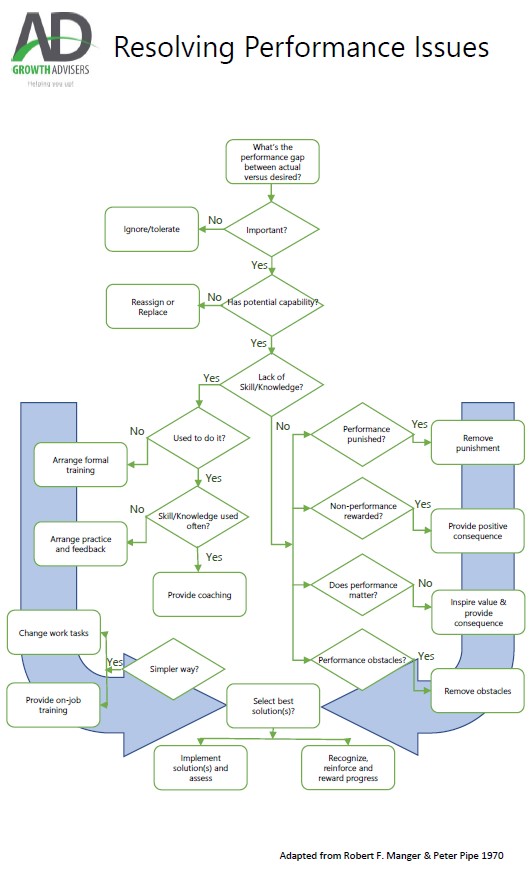
You Have to Know Excellence When You See it
Each business outcome is dependent on two independent variables.
1. The initial inputs into the performance system.
2. The process to convert the initial inputs into the desired outputs.
We have much less ability to directly impact outputs. If we desire excellent outputs or outcomes, then we engineer excellence into our inputs and process.
In sales, the inputs are qualified sales leads. The sales process is all the subsequent steps to result in a profitable deal. One can research and observe what behaviors yield the desired results. These effective behaviors can then become one’s standard of excellence at each step of the sales process. Training and practicing these sales skills scales these excellent sales behaviors to all salespeople. Sales managers can then evaluate actual behaviors and provide coaching and accountability to the standards of excellence.
The test for an attainable standard of excellence is, can the desired excellent behavior be directly observed and measured? If it can be observed and measured, then it can likely be trained to others.
Create an Excellent Deal Wheel
Once excellent sales behaviors at each step in the process have been defined, managers can use a simple scoring wheel for evaluation, accountability, and coaching. See the sample below.
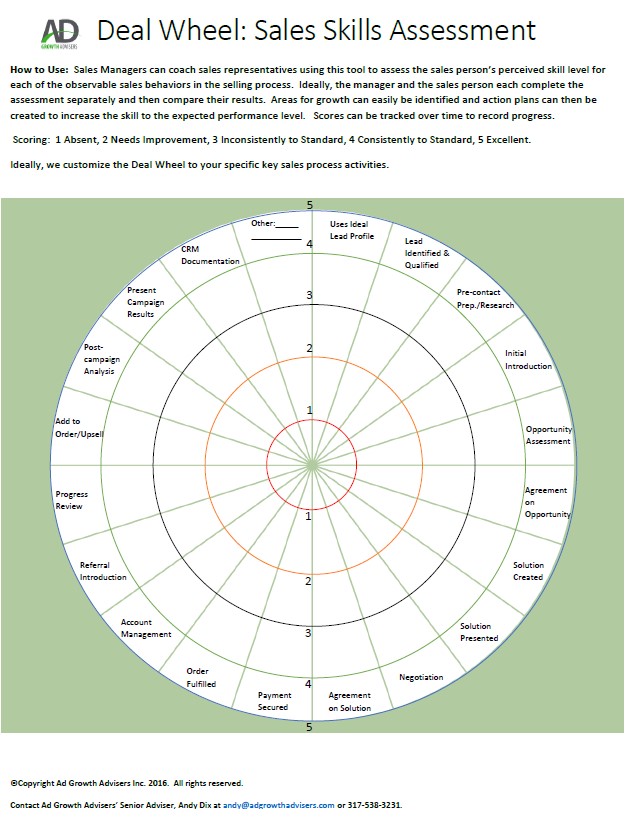
What’s Your Standard of Excellence?
Unless two observers can view and similarly score a behavior against a defined behavioral standard, there is no true standard of excellence. Training to excellent behaviors is not possible without first defining what excellent behavior is at each step or phase of the process. Accountability for performing to the desired outcome is reasonable. But when the performance outcome is less than expected, one must focus on the inputs and process to influence a more desirable outcome. An important question a manager should ask is, “What does excellent behavior look like at each step of our process?” Then, the manager should observe the process in-action to evaluate if it achieves the defined standards of excellence. Without clearly defined standards of excellence, the process is unscaleable.
Views: 152

